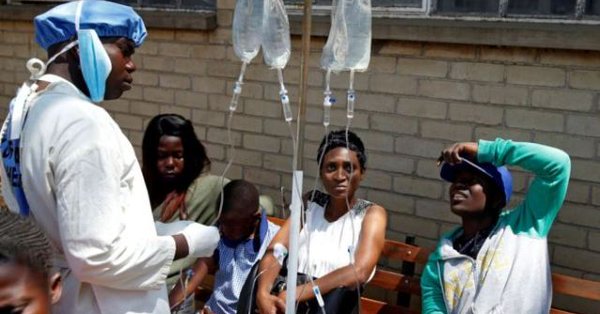It is unfortunate that in this 21st century we still witness the death of so many people as a result of Cholera. We are witnessing history repeat itself. In 2008 thousands of people died as a result of Cholera. In 2018 we are again witnessing the death of more people. A total of 30 people who have died has so far been recorded officially.
By Luwiza Makosa from the Student Christian Movement of Zimbabwe
How Safe is the learning space today?
We as the Student Christian Movement of Zimbabwe (SCMZ) are deeply concerned with this issue. The safety of the learning institutions has always been our concern. This regards to health, social, academic, housing and sanitation among other academic freedom rights we believe students and academics should enjoy. All these sum up to the safety of the learning environment. The 2018 University of Zimbabwe (UZ) graduation was postponed, however lectures are still being conducted which to us is an issue of concern whilst there is less being done to protect the students and academics who are still doing their day to day business. Last week we also witnessed the death of a principal from one of the local primary schools (Glenview 5) as well as six pupils from the same school hence leading to the closure of the school. The prevailing situation in Zimbabwe of the Cholera Outbreak puts all students at risk. However, less is being said and done by the government and to avert the Cholera Outbreak to ensure the safety of the learning institutions. Having worked with students and academics for so many years we know very well that the housing and sanitation for most learning institutions is not safe. We are also aware that our schools and institutions do not have the capacity and adequate measures to curb the Cholera Outbreak. Sadly to note is that in most tertiary institutions we find at least 8 students sharing one small room whilst being charged exorbitant accommodation prices starting at US$75-90 per head.
Quick Easy Prevention Tips
•Treatment is straightforward (basically rehydration),
•In severe cases, an effective antibiotic can reduce the volume and duration of diarrhoea and the period of bacteria excretion.
•Use of safe water and food, and through environmental sanitation.
Effects
Cholera not only affects health but also economies and livelihoods, through the directly incurred costs of curative and preventative care, and through indirect costs such as loss of production and potential embargoes on trade and tourism
What you can do to support Zimbabwe today
We always respond to our call from the word of God from the book of Romans 13:1-7 which obligates us to be good and responsible citizens, “Be a good citizen………. If you’re irresponsible to the state, then you’re irresponsible with God, and God will hold you responsible……….”
SCMZ is kindly asking for all interested people to give pledges in kind and in cash to organise for a cleanup in Harare, Glenview one of the most affected areas to go and clean up as well as for SCMZ to purchase hand sanitisers that will be distributed in various tertiary institutions in Zimbabwe to help prevent Cholera. We also ask for youths and students to take part in this good initiative.
